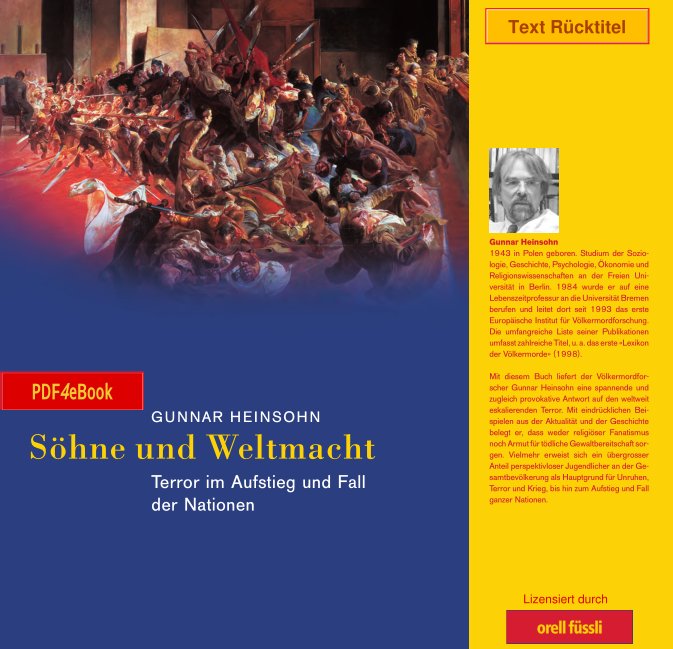, 3 min read
Blend "Söhne und Weltmacht" and "Why Nations Fail"
Original post is here eklausmeier.goip.de/blog/2013/07-19-blend-sohne-und-weltmacht-and-why-nations-fail.
Gunnar Heinsohn (German Wikipedia, English Wikipedia) wrote a book with title Söhne und Weltmacht -- Terror im Aufstieg und Fall der Nationen in German.

This book is about:
- youth bulge and its implication to criminal or war activity
- genocide
- property and possession
This book can explain why nations become unstable, or attack other nations, why nations conduct genocide, the huge impact on the difference between property and simple possession and its implication to economy.
During my last visit at MIT I became aware of a book with title "Why Nations Fail -- The Origins of Power, Prosperity and Poverty" from Daron Acemoglu and James Robinson. This book is about:
- Extractive political and economical system, in the same vein, inclusive political and economical system.
- One elite exchanges another elite.
- World changes but in a path dependant way.
This book can explain why different nations having the same ethnicity, the same religion, similar history, have staggering different wealth.
A video on the book from one of the authors, Daron Acemoglu, is here:
Acemoglu/Robinson's book cannot explain why Europeans went to America in the last centuries. This can, on the other hand be nicely explained by Heinsohn's book. Heinsohn's book cannot explain fully why Mexico's economy falls short of USA's economy. This can be explained by Acemoglu/Robinson's book. Although Heinsohn's book clearly says:
Wenn man den weniger entwickelten Ländern helfen will, dann darf man ihnen kein Geld geben. Die denken sonst in der Tat, daß auf rätselhafte Weise riesige Tresore voll mit dem edlen Papier gerade in OECD-Staaten gelandet sind, die somit ruhig mal etwas abgeben könnten. Doch die haben keine Kisten, sondern für die Geldschaffung belastbares Eigentum. Die Etablierung von Eigentum wiederum erfordert nur ganz geringen technischen Aufwand. Bloße Besitztümer müssen um Eigentumstitel ergänzt und dabei breit gestreut werden. Diese Verteilung muß in Dokumenten über die Eigentumstitel fixiert werden. Kataster und Grundbücher sind anzulegen. Man muß also schreiben und Urkundenstempel herstellen können. Man muß an Gesetze gebundene Polizei und unabhängige Gerichte schaffen, die in Eigentumstitel -- ohne Ansehen der Macht ihrer Halter -- vollstrecken können. All diese Änderungen können auch die Nicht-OECD-Länder ohne großartige Gedankenverrenkungen nachkommen. Keine Hilfe zur Selbsthilfe kann sich segensreicher auswirken als die Information über die Mechanismen der Geldschaffung.
English translation:
If one wants to help the less developed countries, then you should not give them money. These countries then think that large bunkers full of money are located especially in OECD states, and these OECD states should share some of the money in the bunkers. But, the OECD states do not have these kind of bunkers, they have property titles. The establishment of property titles requires only minimal effort. Simple possession must be extended by property titles and distributed widely. This distribution of property titles must be documented. Land registers have to be created. One has to be able to write and seal documents. One must have police and independent courts bound to laws, which must be able to enforce property titles regardless of the reputation and power of current owners. All these changes can be implemented without big fuss in non-OECD states. No helping people help themselves can be more profitable than informing them about this.
Both books point out the importance of the Black Death in Europe in early medieval.
It is interesting to apply the theory of extractive and inclusive systems to corporations, and their success and failures. E.g., consider those institutions too big to fail, and their imminent bureaucracy and power elite.